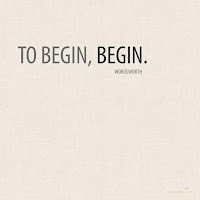As I sat in the traffic, something unusual caught my eye. Not, for a change, someone running the red light. Something altogether more interesting. Something altogether more beautiful. He had bottles lined up, and several more in the air. He threw them and then caught them in sequence, with precision. With masterful artistry. For the briefest of moments, I was captivated.
And then it was time to continue with my journey...
It's these moments that might appear in a Pleasant Events Calendar*, were I to be completing one. And so I might. It reminded me that pleasant things can occur quite out of the blue, in corners that we least expect to find them. I have never met the juggler, whom I presume to be a bartender with flair, or one in the making. And it's unlikely to ever happen, yet in that moment, what I saw him doing changed my day. For the better.
 I enjoy teaching mindfulness. It is a privilege to begin with a new group. Fresh blood, all there with a common purpose though different reasons and motivations might have inspired them to take that bold step and walk into the space for the first time at the beginning of an 8 week programme. All ten of us in the room are interested in how to live life more comfortably.
I enjoy teaching mindfulness. It is a privilege to begin with a new group. Fresh blood, all there with a common purpose though different reasons and motivations might have inspired them to take that bold step and walk into the space for the first time at the beginning of an 8 week programme. All ten of us in the room are interested in how to live life more comfortably.
My role is not to improve the lives of those I come into contact with. There's no difference to my stance whether in the consulting room with clients, or teaching a mindfulness class: life happens. Awful things happen to good people. We can't control much of what happens. We do have a say in what happens next. And that's the bit I'm interested in.
When we step out of the 'thinking about' mode, we have a better chance of 'being with' all our experience, be it good, bad or ugly. And from here we can notice, firstly, how quickly we classify everything that happens, and then perhaps begin to practise becoming more skillful at how we respond.
Pain is inevitable, but suffering is optional. That's not always true (say for instance when you stub your toe, pain and suffering might well both be on the cards - if only briefly). But on the whole it stands up (I have found that the sooner I accept that I've hurt my toe, and stop chastising myself for being so 'stoopid' to do that for the umpteenth time, the more quickly it transforms, lessens and passes).
The juggler reminded me of another foundational tenet of the programme I am leading: practise, practise, practise. There will always be obstacles - mindfulness is simple, but far from easy...
 Making friends with the barriers that beset us is a destination along the way, but we are not moving towards some enlightened state in which we will become immune to the hazards of everyday existence. Far from it; the aim (were there to be one) would be to live more fully in each moment, and to live more comfortably alongside all of our experience, noticing rather than getting caught up in the habits and patterns of mind that tend to attract us, and can then devour us.
Making friends with the barriers that beset us is a destination along the way, but we are not moving towards some enlightened state in which we will become immune to the hazards of everyday existence. Far from it; the aim (were there to be one) would be to live more fully in each moment, and to live more comfortably alongside all of our experience, noticing rather than getting caught up in the habits and patterns of mind that tend to attract us, and can then devour us.
* The recording of pleasant events has been shown to encourage participants to spend more time thinking about pleasant events and consequently feeling the pleasant emotions that go with the event. This is not about reliving monumental joyous events, but rather noticing the small moments of daily pleasure that we often overlook. An important component of the home practice following the second class is an invitation to experiment with recording pleasant events. There are five steps to the process: 1. Recording the event; 2. Asking yourself if you noticed pleasant sensations during the event; 3. Noting in detail physical sensations that occurred during the event; 4. Noting your mood, feelings and thoughts that accompanied the event; 5. Noticing you mood in the present moment while your are remembering and recording the event. From Williams et al., (2007) The Mindful Way through Depression: Freeing Yourself from Chronic Unhappiness.


Comments
Post a Comment